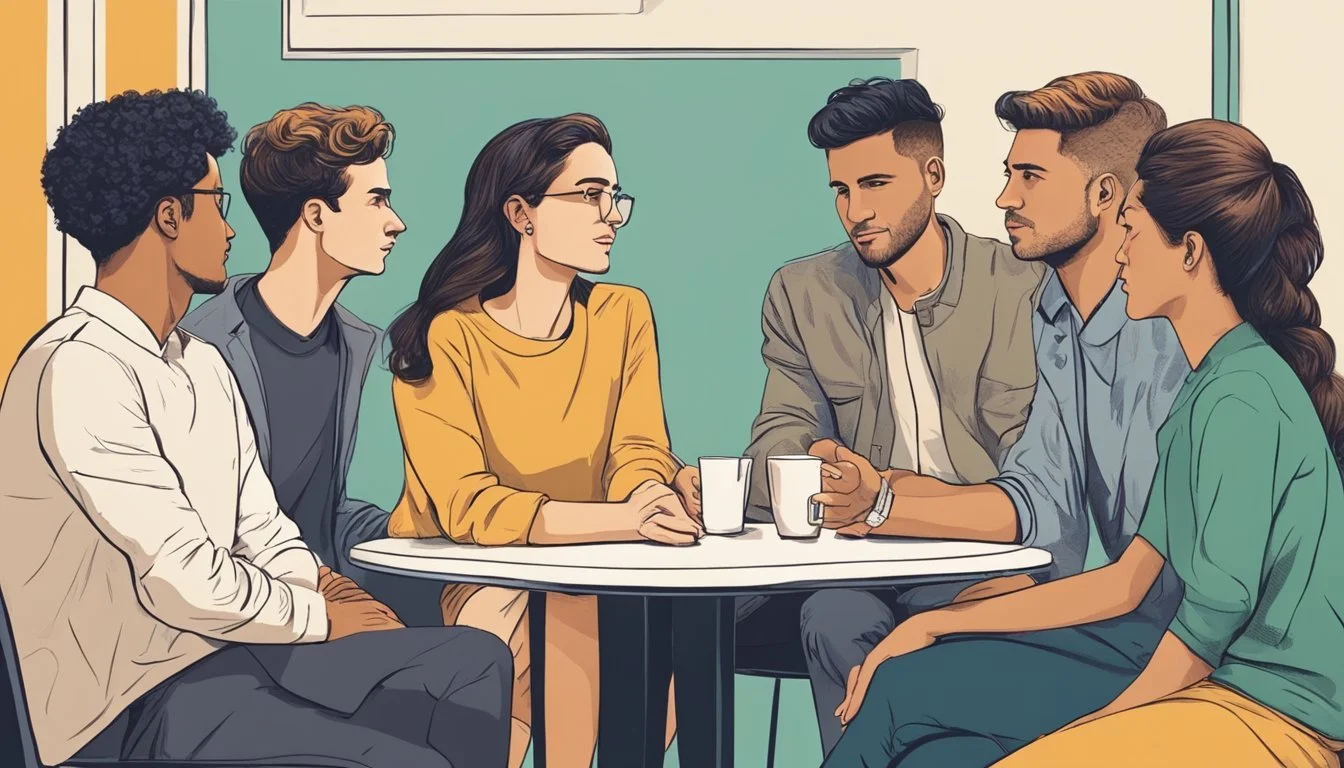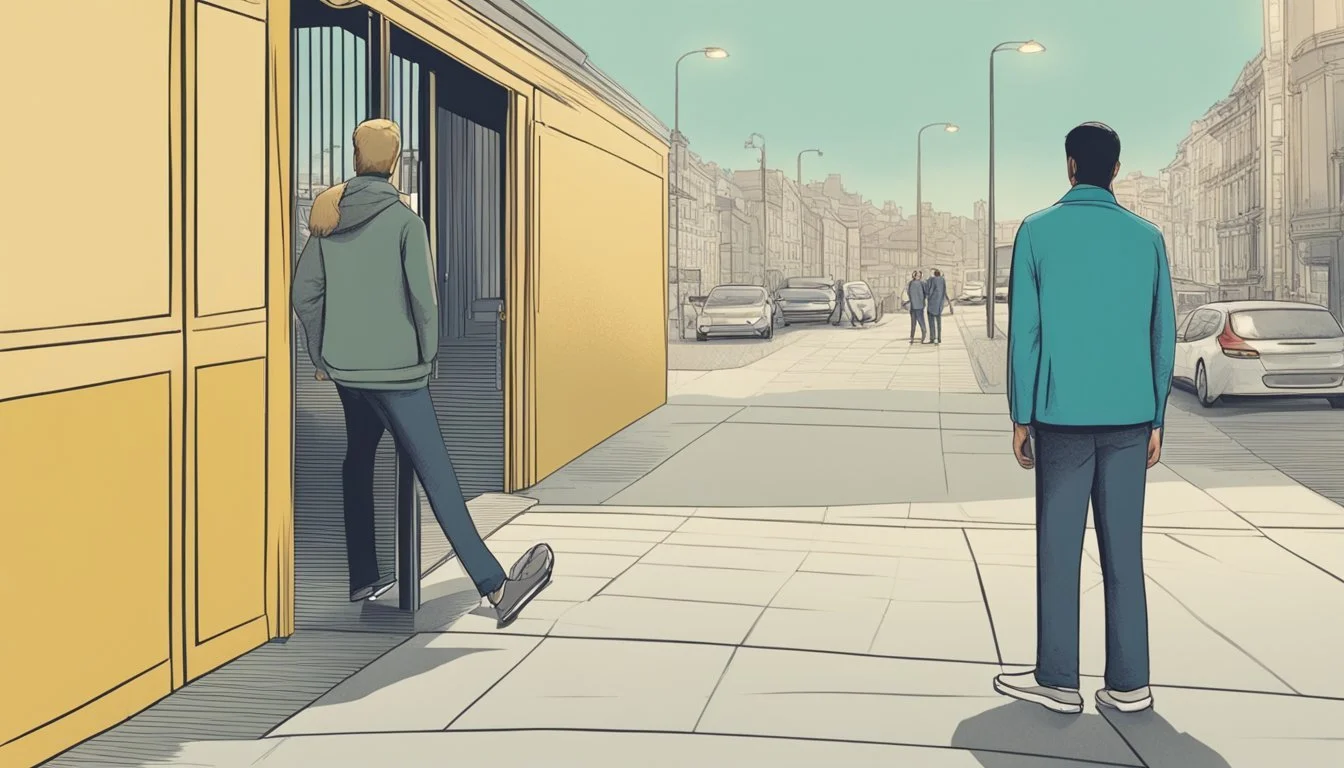8 Indications That Your Friendship Is One-Sided and Draining
Signs to Watch For
Friendships play a crucial role in our lives, providing support, joy, and a sense of connection. Yet, not all friendships are balanced, and sometimes one person may find themselves putting in more effort than the other. This kind of unbalanced relationship is known as a one-sided friendship.
Understanding when a friendship is one-sided can be key to maintaining one’s emotional and physical well-being. Recognizing the signs early on can help in addressing the imbalance and deciding whether to repair the relationship or perhaps move on for the sake of personal health. This article explores subtle and clear indicators that your friendship might be one-sided and emotionally draining.
1) They rarely initiate contact.
In a one-sided friendship, one person often bears the burden of keeping the connection alive. This is evident when they rarely initiate contact. If you're always the one to call, text, or make plans, it indicates an imbalance in your relationship.
When conversation or planning frequencies are consistently one-sided, it becomes clear that the other person might not value the friendship as much. This pattern can lead to feelings of frustration and resentment.
Moreover, if your friend rarely or never calls or sends a message first, it might signal disinterest or lack of commitment. Consistent one-sided interactions can drain the person who is making all the effort.
For a friendship to be mutual, both parties need to show interest and take initiative. If only one person is consistently reaching out, it can quickly become exhausting and emotionally taxing. This unequal dynamic is a key sign of a one-sided friendship, pointing to the necessity of re-evaluating the relationship. For further reading on this behavior, visit Women’s Health.
2) You feel drained after spending time with them.
Spending time with a friend should leave one feeling uplifted and supported. When a person feels consistently drained and emotionally exhausted after interactions, it is a sign that the friendship might be one-sided.
A one-sided friendship often involves significant emotional investment from one person while receiving little in return. This imbalance can lead to feelings of fatigue and depletion.
One common scenario is when a friend continuously talks about their problems without showing interest in the other person’s life. This can make the listener feel like an emotional dumping ground rather than an equal partner in the conversation.
Another indication is when the friend is unreliable, frequently canceling plans or failing to follow through on commitments. The lack of consistency and dependability can leave the other person feeling undervalued and emotionally drained.
Recognizing these patterns is crucial for maintaining one’s well-being. Identifying and addressing these signs can help determine whether the friendship is worth preserving or whether it’s time to set boundaries.
For more information, you can read more about feeling emotionally exhausted in a friendship.
3) They are always the focus of conversations.
A sure sign of a one-sided friendship is when one person consistently dominates conversations. If a friend continuously steers discussions back to themselves, it can be a red flag. This behavior often leaves the other person feeling unheard and undervalued.
When interactions are overly centered on one individual's stories, achievements, or issues, this imbalance becomes more apparent. The person talking may not even realize the impact of their behavior, but it creates a skewed dynamic.
Conversations should be give-and-take exchanges. If one party rarely gets a chance to share their thoughts, feelings, or experiences, it can lead to frustration. This can make the relationship feel more like a monologue than a dialogue.
Friends should ideally share the conversational space, ensuring that both sides feel included and respected. When one person consistently hogs this space, it not only highlights a lack of interest in the other's life but also points to an imbalance in the relationship. This could be an issue that needs addressing.
4) They don’t support your goals and achievements.
A true friend celebrates your successes, no matter how big or small. In a one-sided friendship, this support is noticeably absent. Your friend might show indifference or even jealousy when you share your accomplishments.
Lack of support can manifest in various ways. They may change the subject when you talk about your goals. They might downplay your achievements, making you feel like they are unimportant.
If your friend fails to recognize or celebrate your milestones, it can be deeply disheartening. This lack of encouragement can make you doubt your abilities and diminish your self-worth. It's worth evaluating the balance of support in the friendship to understand its true value.
Real friends show up for you. They attend your events, congratulate you on your progress, and genuinely share in your joy. If your friend consistently overlooks these moments, it’s a sign that the relationship may not be as reciprocal as it should be.
Assess the consistency of support and encouragement in your friendship. If you find yourself feeling alone in your achievements, it may be time to reconsider the dynamic of the relationship. For more signs of a one-sided friendship, visit Women’s Health and Healthline.
5) You feel used or taken advantage of.
Feeling used or taken advantage of is a significant sign of a one-sided friendship. This often happens when the friend frequently seeks help but is rarely available when you need support.
They might reach out only during emergencies or for favors, making the relationship feel transactional. It's essential to recognize this pattern as an imbalance in the friendship's dynamics.
If you notice that you're the one always giving, while they are constantly taking, reassess the friendship. True friendships involve mutual respect and reciprocity, not just one person catering to the other's needs.
When you're left feeling drained and unappreciated, it's a clear indicator that the friendship lacks balance. This situation makes it clear that your feelings and time are not valued, leading to emotional exhaustion.
6) They don’t respect your boundaries.
When a friend doesn't respect your boundaries, it’s a strong sign of a one-sided relationship. Boundaries are essential for mutual respect and understanding in any friendship. If a friend frequently ignores your limits, this can lead to feelings of imbalance and frustration.
One common way this manifests is by dismissing your personal space or time. They may show up unannounced, call late at night, or expect you to drop everything for them. This behavior disregards your need for solitude or your existing commitments.
Another example involves emotional boundaries. If they constantly burden you with their problems without considering your emotional capacity, it displays a lack of respect. This action can drain your energy and emotional resources, leaving you feeling used.
Setting boundaries in friendships is crucial. When these aren't honored, it can cause significant stress. For a friendship to be healthy, both parties should acknowledge and respect each other’s limits. Ignoring these boundaries is a clear indication that the friendship may not be mutually beneficial.
7) You’re the only one making plans.
Friendships should involve mutual effort in planning and spending time together. If one person consistently initiates all get-togethers, this can indicate a one-sided dynamic.
A lack of effort to make plans shows an imbalance. One individual may feel unimportant if they are always the one reaching out.
This pattern is draining. Sustainable friendships thrive on mutual interest and investment in maintaining the relationship. Constantly being the planner can lead to feelings of resentment and exhaustion.
A healthy friendship requires and deserves equal participation from both parties. If you find that you're the sole organizer, it might be time to reassess the balance in your relationship.
8) They never apologize or admit mistakes
In a one-sided friendship, the other person may never acknowledge their mistakes or offer an apology. This behavior signals a lack of respect and accountability. When conflicts arise, they often shift blame onto others rather than taking responsibility for their actions.
Such friends might justify their behavior or avoid the topic altogether. This refusal to apologize can create an atmosphere of tension and resentment. Their inability to recognize their faults shows an unwillingness to grow and change.
A genuine friendship involves mutual respect, where both parties admit their mistakes. When one friend consistently refuses to apologize, it can erode trust and make the relationship feel imbalanced. This denial of fault further highlights their lack of commitment to maintaining a healthy, equitable friendship.
Emotional and Mental Impacts
A one-sided friendship can take a significant toll on your emotional and mental well-being. It often leaves the person putting in all the effort feeling undervalued and stressed.
Feelings of Unhappiness
When a friendship is one-sided, it can lead to deep feelings of unhappiness. The person may feel unnoticed or unappreciated because their efforts are not reciprocated. This lack of mutual support can foster loneliness and isolation.
The constant imbalance can make one question their worth and value within the friendship. They may feel they're not as important as the other person, undermining their self-esteem.
Experiencing disappointment regularly due to unmet expectations from the friend can further amplify feelings of sadness and discontent.
Increased Stress Levels
One-sided friendships are often emotionally taxing and can lead to increased stress levels. The person investing more in the relationship might constantly worry about the state of the friendship or feel pressured to maintain it.
This emotional strain can manifest in physical symptoms such as headaches, fatigue, and even sleep disturbances. The ongoing mental effort to keep the friendship alive can deplete one's energy.
Constantly trying to win the other person's approval or dealing with their emotional dumping can be particularly exhausting and lead to long-term stress and anxiety issues.
Signs of One-Sidedness
Recognizing the signs of a one-sided friendship can help you regain balance and decide if the relationship is worth maintaining. Key indicators include always being the one to initiate contact and frequently feeling unappreciated.
Always Initiating Contact
If you find yourself always being the one to reach out, this is a significant sign. In a healthy relationship, both parties should make an effort to maintain communication. You might notice that your friend rarely calls or messages first, leaving that responsibility entirely up to you.
This behavior can be draining over time. It gives the impression that your friend is not genuinely interested in maintaining the connection, which can lead to feelings of rejection and loneliness.
Feeling Unappreciated
Feeling unappreciated is another clear signal. In one-sided friendships, one person often supports and goes out of their way for the other, only to receive minimal or no gratitude. Small gestures, like saying thank you, might be overlooked by your friend.
This lack of appreciation can erode your self-esteem and make you question the value you bring to the relationship. Over time, these unresolved feelings of neglect can create a sense of emotional imbalance, justifying a reevaluation of the friendship.
Steps to Address the Issue
Effective communication of personal needs and the establishment of boundaries can help re-balance a one-sided friendship and foster healthier interactions.
Communicating Your Needs
The first step is opening a dialogue with your friend. It's beneficial to be direct and clear about what you need from the friendship. This includes specifying any changes you desire, such as more consistent communication or mutual emotional support.
When discussing, use "I" statements to prevent sounding accusatory. For example, "I feel undervalued when our plans are often canceled last minute." This approach ensures the conversation remains constructive.
Listening is equally crucial. Allow your friend to share their perspective. This can uncover misunderstandings or reveal that they were unaware of your feelings. Together, you can work towards a mutually beneficial resolution.
Setting Boundaries
Establishing boundaries helps in maintaining your well-being. Identify behaviors that drain you and decide on reasonable limits. For instance, setting a limit on the time spent listening to your friend's problems without reciprocal support can be a starting point.
Communicate these boundaries clearly and kindly. For example, "I can support you, but I also need time to focus on my own issues." Honoring these boundaries yourself is critical, as it reinforces their importance.
Be consistent with your boundaries and follow through. If a friend repeatedly disregards them, reassess the friendship. Respectful friends will understand and adapt, leading to a healthier relationship dynamic.






